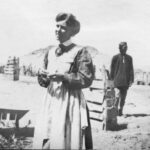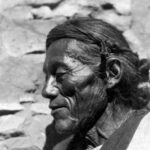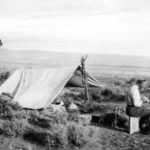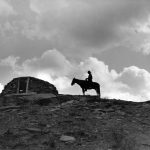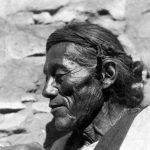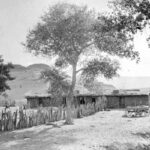
The wisdom of such a move was not evident to the folks back in Mancos. The costs of desert life were loneliness, hardships, and isolation from the security of civilization. Provisions were limited to those that could be hauled in over rough wagon roads from distant supply points, and the many niceties of society were no longer close at hand. Nevertheless, the Wetherills came to relish the change. John was no stranger to the desert, and he had developed a profound appreciation for it. Louisa was getting to know her Navajo neighbors, and the two children—Ben, who was nearly four and Sister, a year younger—were hardy and adaptable.
For Louisa, the experience became transformative.

